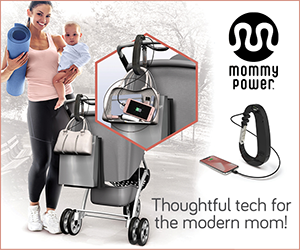What makes you a wiz at homemade baby food?
The start of feeding baby solids excites most parents, but for some, takes them to a place of uncertainty and even panic.
When a friend of mine suggested to me that I offer cooking classes for new moms, my first thought was “Why, it’s so easy to make baby food?” Her reply was “…well I don’t know how”.
After doing some market research (or talking to everyone I knew about the idea), I found that she wasn’t the only one who was intimidated to make homemade baby food.
Well my friend was right! For the past four years, I’ve been teaching newby and seasoned parents to make homemade baby food from smooth purees to chunky meals for babies, toddler fare and family meals.
And what have the hundreds and hundreds of parents take away with them—other than batches of food for their baby or toddler for at least a week? Confidence. The know how, way to, and self-assurance that they can cook and feed their baby in the best way they know how. Not only during a six-week Mommy Chef series, but from the first time they pick up that peeler ‘til they are well into potty training.
Confidence is really the key to all of this, or that’s what I think anyway. You can learn how to peel a butternut squash or dice a carrot into non-choking hazard size pieces, but the lack of confidence to do it is what I see holds so many back.
I’ve had chefs in my class, who obviously know their way around a knife and chopping board, but they’re lacking in the know how to simplify their immense talent in the kitchen to make food for their baby or tot, which is why they come. I’ve also taught parents who have honestly never held a knife, or chopped up a vegetable. They never had the motivation to do so, and so have no confidence in the kitchen. And then there’s every degree of experience in between.
How do you make baby food? Yes, it’s a step-by-step process of peeling, chopping, steaming and pureeing, but really it’s putting your mind to it, committing to giving it a go and see how it turns out. The confidence will come as the food is well received, goes down well and then you see it out the other end without any worrisome symptoms.
And when the food is spat out, scraped out of the mouth, well it may take a bit of the wind out of your sails, but I have yet to meet anyone who loves all food that’s put in front of them. It happens and it will continue to do so for some years to come. Rise above it, keep cooking and don’t let it slow you down. As soon as your confidence is knocked, you look to someone else—or down another food aisle for the answers.
Come on, you can do it. You know and understand that it’s the best thing for your baby—to develop the palate for great tastes and flavours and knowing what’s in the food that you are serving is so worth the effort.
To help give you a boost of confidence and get you started, here are a couple of recipes that are universally loved.
And if you need more support than this (shameless plug coming…) I have Mommy Chef DVDs, the Sprout Right book, private and group cooking classes and consultations to get you on the right track and keep you there!
So get your chef’s hat (or throw on your baby’s sun hat to get in the mood) and get cooking! I’d love to hear your success stories.
Butternut Squash Purée
I recommend this as a first food— babies they love the smooth texture and flavour, and it’s sweet but not too sweet.
1 lb butternut squash 500 g
1. Peel, de-seed, and chop squash into small cubes.
2. Steam until tender, about 15 to 20 minutes.
3. Purée, adding ? to 1 cup (125 to 250 mL) water, until it reaches the texture of a smooth, thick soup. Makes about 3 cups (750 mL).
Note: Squash tends to be a little watery after defrosting, so make this purée slightly thicker if you’re going to freeze it.
Nutritional Information: Butternut squash is a good source of vitamin A (in the form of beta carotene), vitamin C, potassium, fibre, manganese, folic acid, vitamins B1, B3, and B6, copper, and pantothenic acid.
Pear Purée
Pear is a lovely second food to introduce. Smooth and sweet! A common favourite.
8 pears (D’Anjou, Bartlett, or Bosc) 8
1. Peel, core, and chop pears into medium-sized cubes.
2. Steam until tender, about 7 to 10 minutes.
3. Purée until smooth (no added water needed). Makes about 3 cups (750 mL).
Nutritional Information: Pears are a good source of vitamin C and fibre.
Recipes from Sprout Right – Nutrition from Tummy to Toddler ©Penguin Canada 2010
-
Nicole



